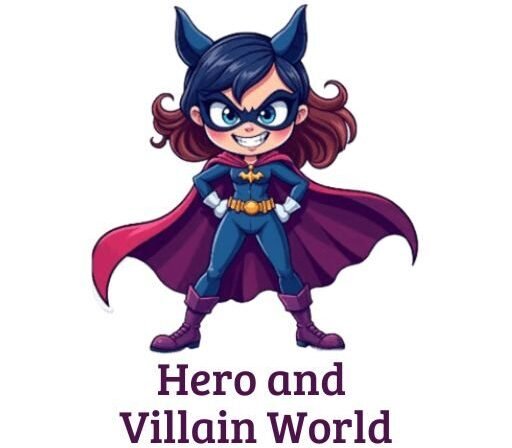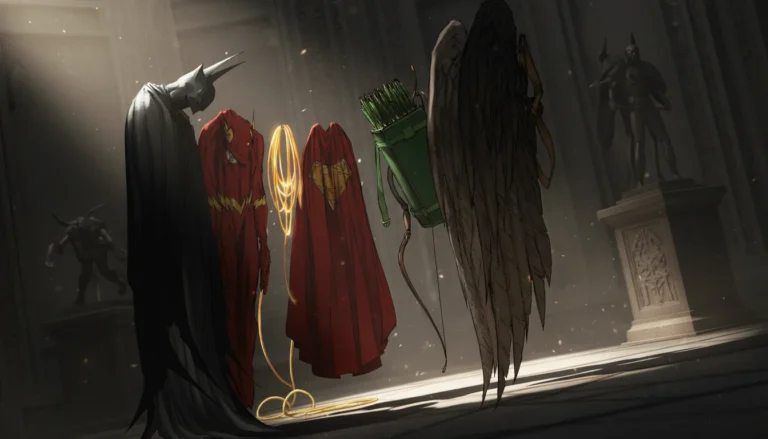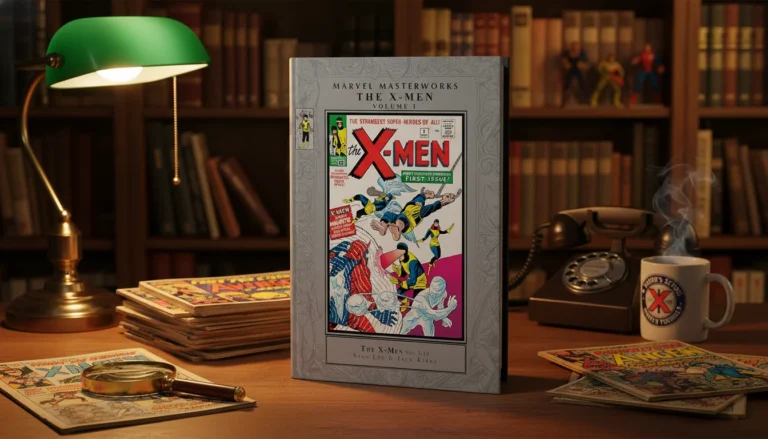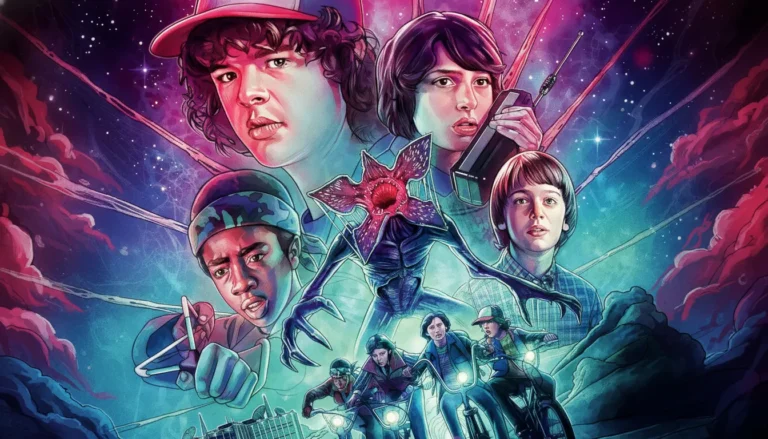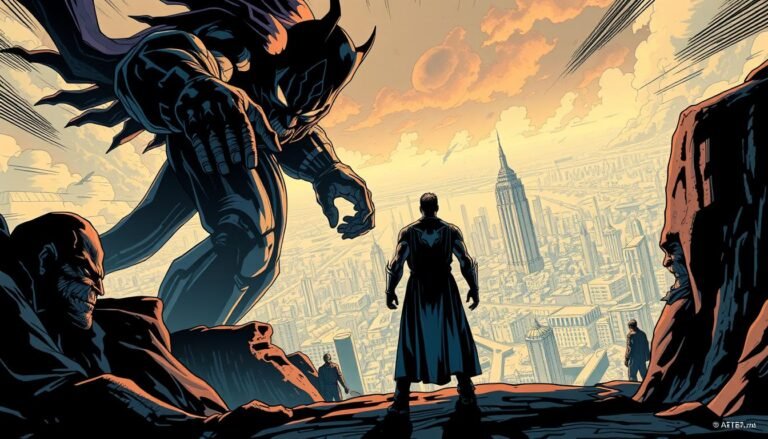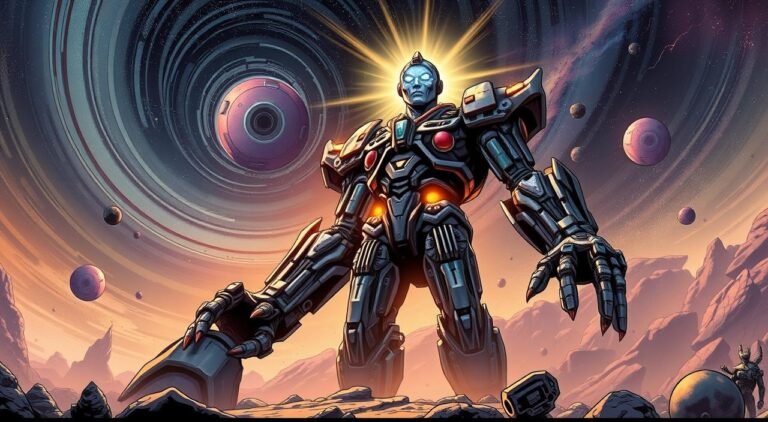Black Panther’s New Enemy Is An Old Friend
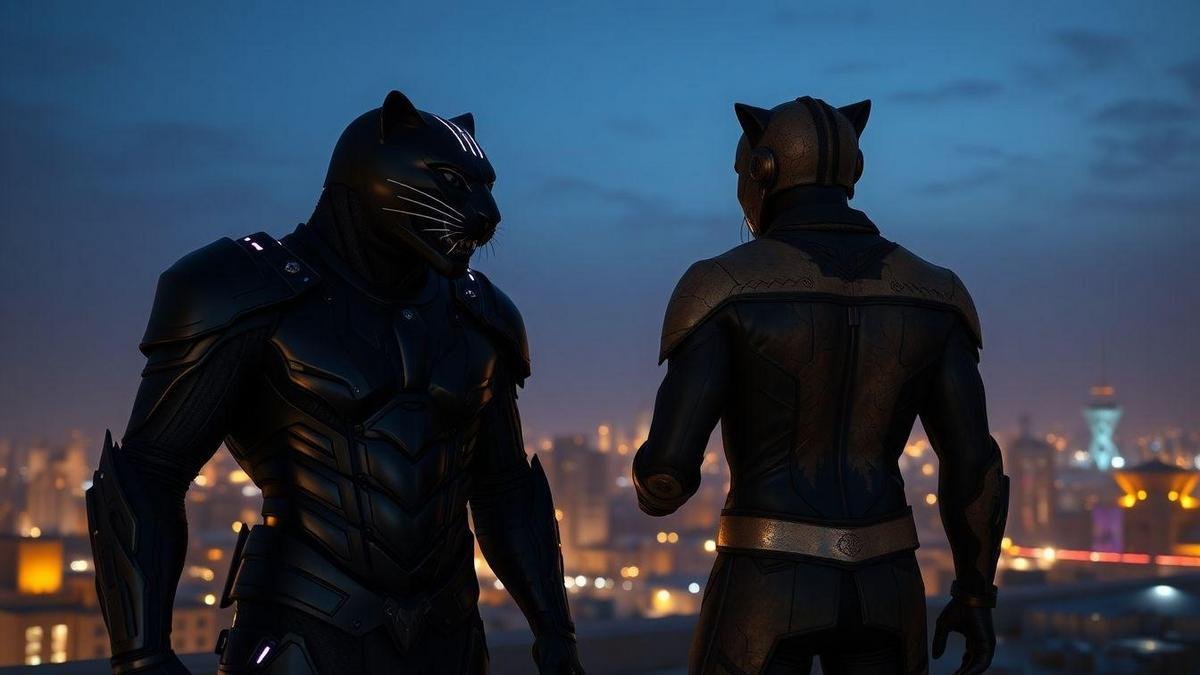
Black Panther’s New Enemy Is An Old Friend — and that sting lands fast. You feel the weight of betrayal. A fallen ally cuts Wakanda and T’Challa deep. Broken trust, hidden identities, and political intrigue force messy choices. Small signs become big warnings.
This piece explores examples, moral gray areas, and how loyalty and power shift in Wakanda, echoing other Marvel stories of covert betrayal like infiltration and deception.
Key takeaway
- You face a friend turned enemy.
- You feel hurt and confused.
- You must decide to fight or forgive.
- Your choice shapes Wakanda’s future.
- Rebuilding the friendship is possible but fragile.
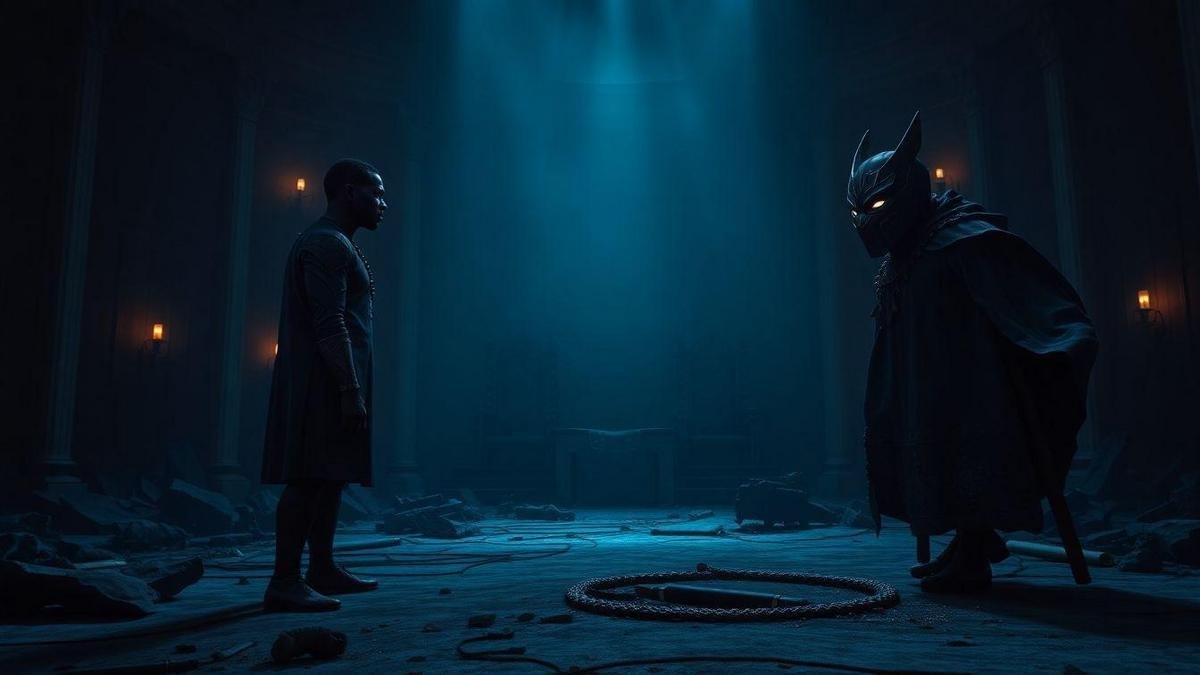
How Black Panther’s New Enemy Is An Old Friend reveals betrayal for T’Challa
Why betrayal from a former ally hurts Wakanda — and you
Betrayal cuts deeper when it comes from someone you trusted. It weakens Wakanda and shakes your faith in people. The effects are immediate and structural.
| What breaks | How it hurts Wakanda | How it affects you |
|---|---|---|
| Security | Enemy knows secrets and leaks plans | You feel unsafe |
| Leadership | The throne looks weak; rivals press advantage | You doubt leaders you once trusted |
| Morale | Citizens lose hope; unity drops | You lose faith in teamwork |
| Resources | Tech and supplies stolen or wasted | You worry about the future |
| Trust | Bonds between clans fray fast | You guard your heart and choices |
A former ally turning their knowledge into a weapon makes problems faster and uglier — you watch trust crumble like a cracked mask.
This pattern of insider betrayal and public fallout has parallels in other Marvel upheavals where internal actors shift the balance of power. For background, see an Overview of Black Panther comics history.
Examples of an old friend turned enemy in Black Panther comics
You need clear cases to see the pattern. These comic arcs show close ties breaking, and they sit alongside other examples of memorable antagonists across the Marvel roster — see a roundup of iconic Marvel villains for context on how betrayal reshapes heroes.
| Character | Role before | How they turned |
|---|---|---|
| Nakia (as Malice) | Former lover and operative | Became Malice, fought T’Challa and worked against Wakanda |
| M’Baku (Man-Ape) | Rival leader with past dealings | Challenged T’Challa and led plots that harmed the kingdom |
| Trusted insiders (general) | Advisors, guards, allies | Some inner-circle members betray Wakanda for power or revenge |
For official character details, see the Official Black Panther character profile page. These moments repeat the danger: people closest to the king can switch sides. That sting is personal and public all at once.
What this betrayal teaches about trust in Wakanda
- Watch actions, not words. Trust is earned by proof.
- Have backup plans. Don’t leave everything to one person.
- Limit access. Keep secrets on a need-to-know basis.
- Forgive with caution. Forgiveness heals, but safeguards keep you safe.
- Heed small signs. Small lies often become big betrayals; paying attention to narrative foreshadowing techniques used in long-form comics helps spot trouble early.
Trust is a living thing. It can heal or it can rot — you decide how to guard it.
Secret identity conflict: what you learn when a friend discovers T’Challa’s double life
How secret-identity conflict creates moral ambiguity for you and the king
When a friend finds out, trust splits in two. You worry about safety; T’Challa must weigh duty against personal bonds. Both of you face hard moral calls. For a general overview of the trope and its tensions, see How secret identities create moral dilemmas.
| Choice | For you | For T’Challa |
|---|---|---|
| Keep the secret | Protects the king, but lies damage your bond | Preserves Wakanda’s safety, but personal guilt grows |
| Reveal the truth | Honesty strengthens friendship, but risks danger | Shared burden; possible political fallout |
Think of a whistleblower who knows a CEO’s private acts. The friend now holds power. That power tests your loyalty and the king’s responsibility. These dilemmas intersect with broader industry conversations about character ownership and public identity that shape how creators and readers treat secret identities.
When a former ally turned antagonist knows Wakanda’s hidden truths
When a past ally learns secrets, they gain leverage. You feel betrayed and scared. T’Challa must act like a ruler and a man. That split is raw and personal.
Short examples:
- A friend leaking plans puts civilians at risk.
- A betrayed confidant might join outside forces.
Motives matter: revenge, money, or a moral crusade — each changes your response.
Signs a close ally might become an enemy
- Changes in behavior: they grow distant or secretive.
- Shifted goals: their aims no longer match Wakanda’s values.
- Risky disclosures: they share small secrets first.
- Sudden alliances: they meet with known foes.
- Moral drift: they justify harm for a “greater good.”
| Signal | What it may mean |
|---|---|
| Secret meetings | They are planning or being influenced |
| Inconsistent stories | They hide true intent |
| Protecting one person too much | Possible cover for ulterior motives |
Stay alert. A single honest conversation may stop a war.
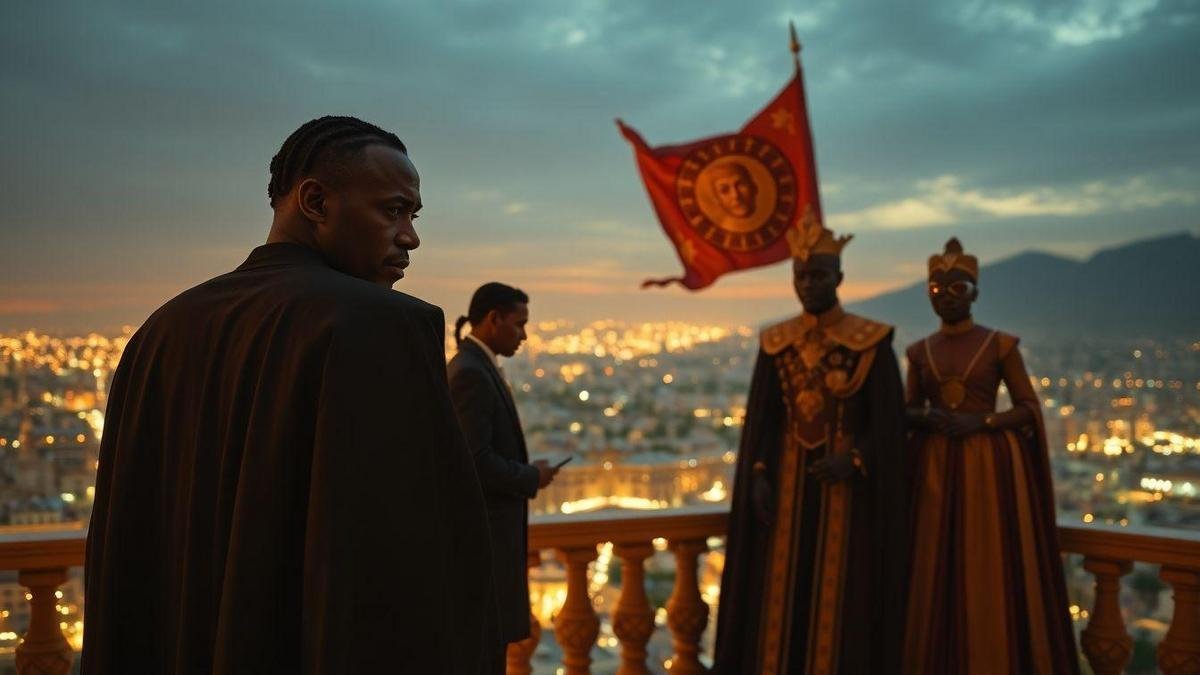
Political intrigue in Wakanda: how a former ally shifts power
How political moves by an old friend change T’Challa’s rule
When an old friend switches sides, the ground shifts under the throne. An ally who knows your playbook can hit your weak spots first — eroding trust inside the palace and support in the council. The cultural role of comics in reflecting power struggles is explored in the Library of Congress comics and society resources.
Think corporate betrayal: a trusted advisor leaks plans, the board turns, the CEO scrambles. Similar mass political shifts have been depicted in other Marvel storylines where insiders disrupted governance, such as the upheavals described in accounts of power grabs and political realignment. An insider in Wakanda can:
| Move | Effect on T’Challa | Why it matters |
|---|---|---|
| Sway the royal council | Limits T’Challa’s votes | Reduces his ability to act |
| Control information | Creates public doubt | Lowers public confidence |
| Redirect resources | Weakens defenses | Opens borders to threats |
| Forge alliances abroad | Isolates Wakanda | Shifts diplomatic balance |
Responding is a tightrope: act too fast and you look rash; wait and you lose ground.
The comic-book twist that makes fans question loyalty and leadership
When the story reveals Black Panther’s New Enemy Is An Old Friend, it hits like a cold shower. Fans read betrayal as a test and ask: who should you trust? Is leadership strength or mercy?
The twist works like the best moments in serialized comics — think of memorable cliffhangers that change everything — and often fuels intense discussion and speculation across fandoms, including fan theories that later proved true.
This twist does three things:
- Forces you to question motives — power, fear, grief?
- Pushes T’Challa into tough choices: punish or forgive?
- Shows leadership is messy — a king must balance justice and strategy.
Fans debate: some side with the ruler; others empathize with the betrayer. That friction keeps the story alive and deepens character arcs.
| Fan reaction | Big questions raised |
|---|---|
| Shock and anger | Can a leader protect trust? |
| Sympathy for antagonist | What cost does loyalty have? |
| Debate over tactics | Is force or diplomacy better? |
How these power struggles shape Wakanda’s future
Power fights leave scars and force change. Short-term moves: tighten security and limit public voices. Medium-term: political reforms and alliance shifts. Long-term: new leadership norms and altered national identity — consequences not unlike large-scale events such as the shifts after the War of the Realms that reshaped nations and alliances.
| Timeline | Likely change |
|---|---|
| Immediate | Heightened security; show of strength |
| 1–3 years | Political reforms; altered alliances |
| Long run | New leadership norms; changed identity |
These struggles make people more cautious. Citizens learn to vet allies harder and ask tough questions. Betrayal can make Wakanda harsher — or wiser. You watch which way it leans.
Conclusion: Black Panther’s New Enemy Is An Old Friend
You feel the sting of betrayal because it comes from someone you once trusted. That twist forces you to rethink trust, loyalty, and what it means to lead Wakanda. You watch T’Challa balance his heart and his crown. Short, sharp choices follow.
Takeaways: watch actions, not words; build backup plans; keep secrets on a need-to-know basis; forgive when it heals, but stay vigilant. Leadership walks a tightrope between justice and mercy. One misstep and a kingdom shifts; one steady move and it grows stronger.
This story — Black Panther’s New Enemy Is An Old Friend — isn’t just about comic fights. It’s about how a single betrayal can reshape a nation and how you view the people around you.
For more reading on related themes like foreshadowing and how fans respond to big twists, see foreshadowing in long-form comics and fan theories that came true.
Frequently asked questions
It means someone you trusted turns against you. Expect betrayal, shock, and moral complexity — similar to other Marvel stories about hidden operatives and betrayals like Secret Invasion.
It could be any close ally from Wakanda — a lover, advisor, or guard. Watch their past and actions for clues. For comparisons, look at how other notable antagonists changed their roles in the list of iconic Marvel villains.
It makes the story personal and tense. Expect deeper emotions, political fallout, and tricky choices — the kind of escalation that fuels great cliffhangers and long-term narrative shifts (see examples).
Yes. Expect tight fights and clever tactics alongside emotional confrontations; large-scale consequences in comics often follow personal betrayals and can echo the intensity of cosmic conflicts.
Trust becomes harder. You must watch actions, not just words. Trust must be earned again — a theme that runs through many major Marvel upheavals and debates about leadership and representation in comics (diversity and representation in modern comics).
